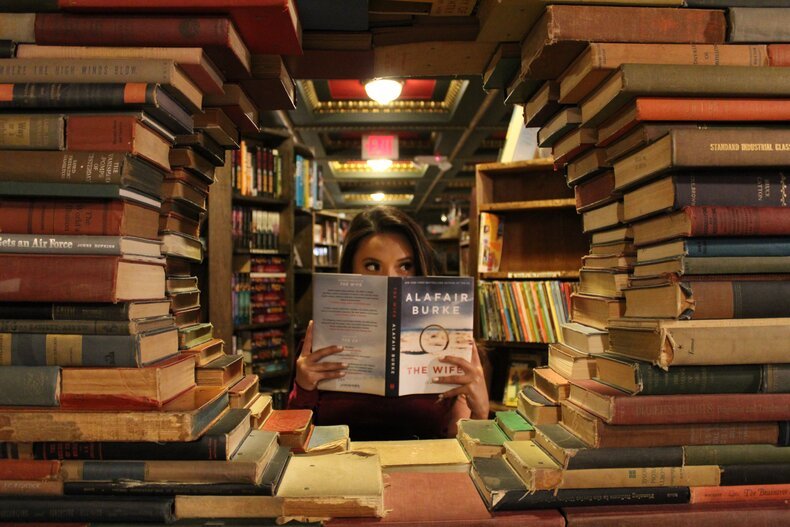The habitat affects us. From a health philosophy, physical health can be determined by the various delimiters of the surroundings, like the quality index of the air, whether it is pure or smoky, in which we are respiring. Ironically, our intellectual wellness depends on the company we keep or avoid.
A few days ago, I experienced a debating session on the PU campus, where senior scholars from the Political Science department argued about the societal problems linked with the colonial narrative. Contrary to the debate, I made a novel claim. “If Pakistanis are not progressing due to past colonization, why are Indians advancing? However, we both have a shared history of imperialism.”In the end, Professor Bilal Ahmed asked: “How do you have unique intellectual growth among your age or class group? The climate influenced me, I replied. How? Let see.
History goes three years back. On the first day of the hostel, I met with Dr. Shahzeb Khan at his official residency. He was wearing a decent winter shawl and looked intellectual in chatter. When I sat beside him, he pressed my shoulder gently and said, “Search the connotation of your life and then read; your purpose in life will give the logical ties to your knowledge.” It was the beginning of adaptation. Subsequently, I built a reading culture and became a part of the rejuvenation movement flourishing on campus. What did I discover? Here it is:
The pleasure category of reading cannot appreciate. It is the habit of reading exceptionally or only when you feel bored. Reading without an objective is also pleasure reading. Many people read to heal before going to sleep; it can be a good habit instead of watching Netflix in bed, but it cannot lead to progress toward any intent. Reading while sitting on a bench in a departmental corridor is the least helpful step toward purpose-centric reading.
Purpose-oriented reading should supersede the pleasure-centric reading habit. What are you reading? It should depend on the answer: why are you reading? Psychology reports cite two benefits of following this reading approach: Purposeful reading transforms the information fed into our minds into knowledge and nourishes clarity. Harari begins his book, 21 Lessons for the 21st Century, with this phrase: In this world of deluged information, clarity is power. Neda Muji says: The love of reading does not develop in a vacuum. Avid readers and bookworms are a product of their environmental forces.
Joining study circles can raise the reading level to new pinnacles. Primarily, it constructs an instinct for knowledge-seeking. It optimizes your ability to choose your reading. I can remember the cold evenings of last winter when I debated novel ideas on the beautiful lawns of the Sociology Department at PU. The sharing of the participants provoked me to read about them deeply. Further, it aided in forming a chain of arguments rather than becoming a blind reader or listener. Researchers also say that group reading is more influential than individual study.
Fruitless WhatsApp gossip should replace by the sharing of thoughts. I can recollect the last summer vacation when I discussed the philosophy of René Descartes with a colleague. I read the entire day and shared opinions in the nighttime. However, the reading culture ended due to her misplaced preferences. Now, she believes the sharing of analysis a useless debate; an intellectual exchange in the prolonged chit-chat started with the query, How was your day? with another coworker.
Reading should be globular in nature rather than compartmental. The latter term can define as opting for reading bound to discipline. Dr. Faisal Bari, who chairs the schools of education at LUMS, enunciates: When I attended an international university and observed the nature of offered courses like music, dancing, and poetry, I discovered that Pakistani students are too obsessed with the curriculum. Further, he builds the discourse that critical thinking plunges due to compartmentalization. Inquisitive readers must visit his research.
Reading culture in summer vacations should thrive. Summer vacation is an extended time when learners get free from catastrophic, highly specialized knowledge of the profession. Students should visit bookshops and Sunday book bazaars and motivate to opt for readings according to their taste. They may read in the grouping and share their insights with others.
Faisal Bari asserts that summer breaks are long enough to permit students some time away from their curricular and textbook commitments. It is a time when students can read broadly and more deeply. Irrespective of whether or not they intern, pupils should make a plan for their summer reading. It can be around the subject of love. But the aim should be to deepen that interest through a curated list.
Highly specialized knowledge is a cult in our society. It diminishes the flicker of creativity. I have accentuated in my previous columns; that science learners should focus on liberalized education. Anjum Altaf, who chairs the LUMS School of Humanities, also reasoned that the boundaries between scientific and arts disciplines must be slimmer. He supports his lawsuit by citing the essay of an American professor, marks soluka, titled: When Math and science run out of School. His profound research has been recorded in the folio books Lahore.
The design is that pupils should invest summer vacations for reading, traveling, and grouping. Later on, they can return to the curriculum studies. Happy Holidays!

One thought on “Reading culture in summer holidays”
Great! For fostering an environment that values intellectual curiosity.